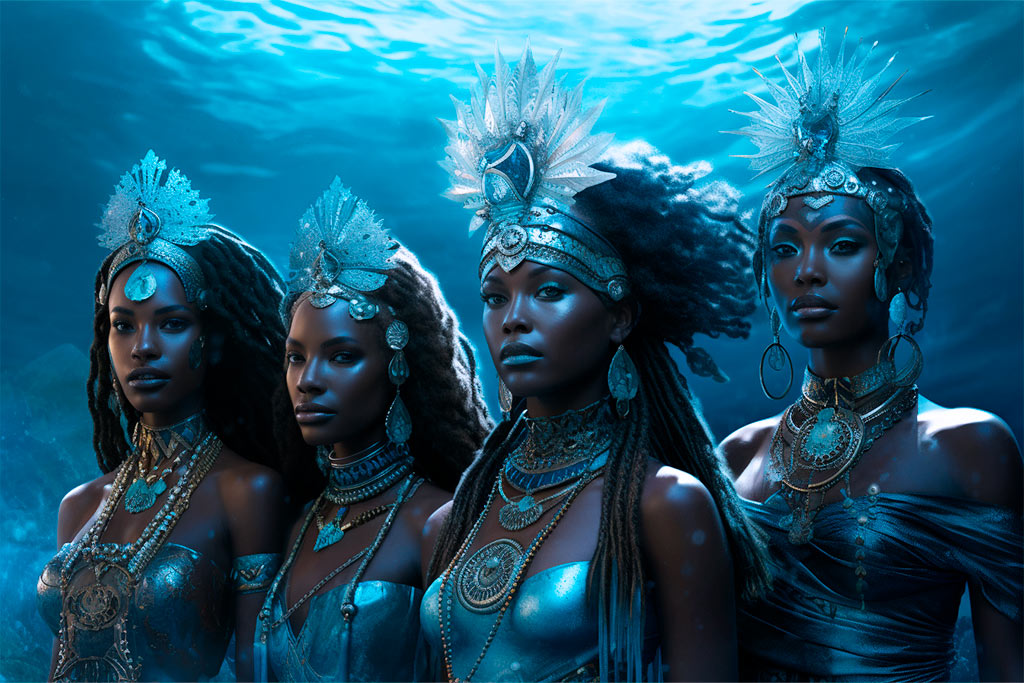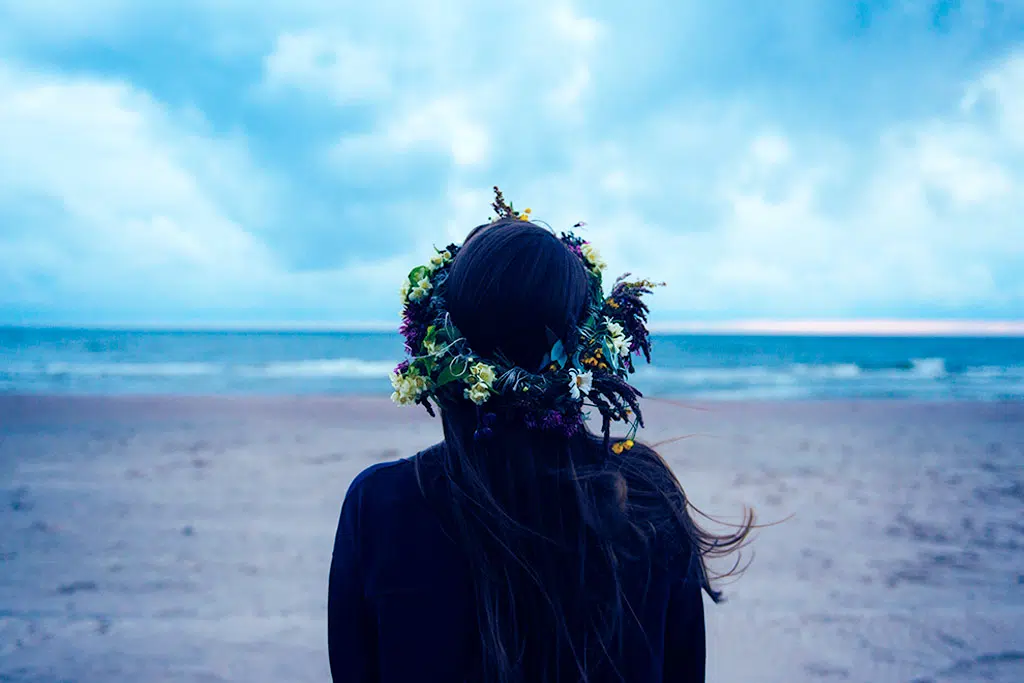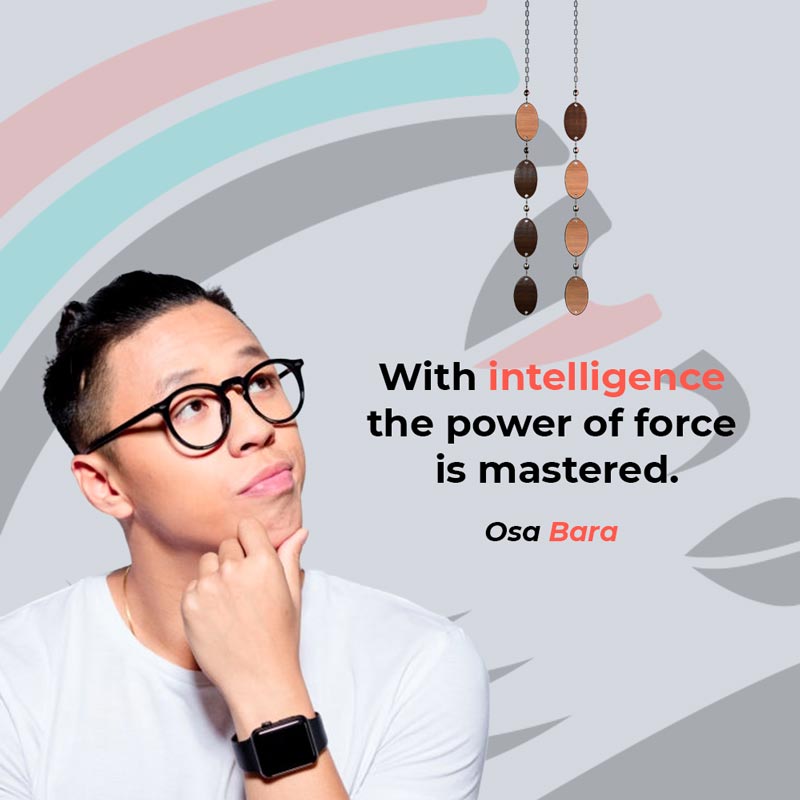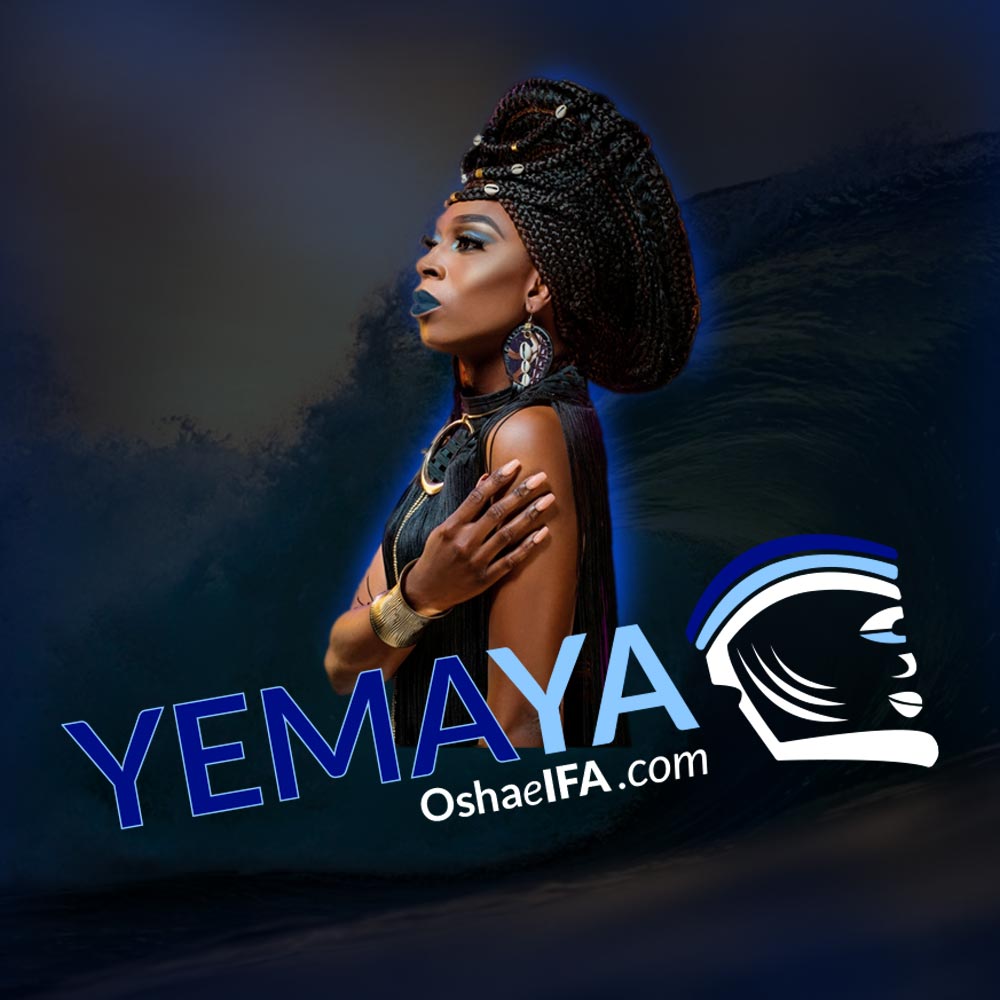Children of Yemaya: Identity and devotion

To determine that the practitioners of the Osha and Ifa rule are indeed children of Yemaya or any other Orisha, it is necessary that they participate in certain rituals, where one of the oracles (Ifa or meridiloggun) certifies which of the deities is the "guardian angel or tutelary Orisha" of the person concerned.
When we talk about Yemaya As a guardian angel, her main characteristic is immediately apparent, being the "Mother of all", definitely, she is an extremely protective deity, who fiercely cares for her children, and does not abandon them in the face of adversity. Mari Silva (2021), in her book Orishas: The Definitive Guide to African Orishas Deities and Their Presence in Yoruba, Santeria, Voodoo, and Hudú, with an Explanation of Dilogún Divination, makes a beautiful statement about the way in which this deity protects his followers:
«As an orisha, Yemayá is protective of her children, humanity, and shares their joys and sorrows. When the Yoruba empire fell and many were taken to the sea to be sold as slaves, some say that its devotees cried out to Yemaya, the mother of waters, to comfort them in their loss and help them find strength and courage in the troubled and strange waters. Yemayá responded by calming the waves of the sea, keeping the hearts and minds of the people strong, until they could reach land and continue the Yoruba tradition. (p.135).
What are Yemaya's children like?
After determining the influence of Yemaya on his protégés, identified as his "children", it is possible to recognize certain features in common with the deity, therefore, a common question among practitioners of the Osha and Ifa rule is How are Yemaya's children? whose characteristics are detailed below:
If there is something that defines the children of Yemaya, it is that they enjoy great spiritual ability because it is said that they are witches by nature. This is due to the spiritual abilities that it gives to those protected by it. Shango Omo Asa. (2021), in his book Orisha's power, maintains in this regard that: "They usually have a natural Ashé for everything, even for witchcraft." (p.82).

Other positive traits that they can develop is that they are helpful, orderly, neat, meticulous people, lovers of the sea and nature, industrious, modest, logical, foreseeable and very practical. But, without a doubt, the facet that most identifies them is that they are very maternal or paternal. R. Prandi, in his text African Gods in contemporary Brazil adds that:
"Their sons and daughters are good fathers and mothers, who protect their children, friends and relatives like lions..." (p. 652).
However, when they are badly aspected, they can develop completely contrary behaviors, even becoming unaffectionate. It is estimated that they have a personality that is sometimes strong or changeable like the waves of the sea, which can make them analytical, perfectionist individuals, becoming very critical, sometimes foolish, even fussy or overly demanding. In the worst case, they become very complex, somewhat hypochondriac, skeptical, incredulous, sometimes very extroverted or too inhibited, and when they get upset, they have a hard time forgiving. Shango Omo Asa. (2021), indicates that:
“They tend to be willful. At times strong and rigorous, arrogant and impetuous... Their character is like the sea, very changeable, so you never know how they may be at any given time. (p.82)
Yemaya's daughters They enjoy a particular appreciation from this Orisha, because they share one of her greatest virtues, which is conception. This does not mean that she loves her sons in a lesser proportion, it is even well known that she recognizes all beings as her sons, however, this link makes her develop a particular affinity with her followers. her. This is stated by Mari Silva (2021), when she indicates that:
«In addition to being a mother to everyone, Yemayá has a soft spot for her daughters and offers them a cure for infertility. An infertile woman only had to offer a sacrifice to Yemayá and, in exchange, she offers one of her eggs to the woman to promote fertility. Yemayá is in charge of everything related to women, especially childbirth, upbringing, love and healing. (p.136).
On a religious level, her daughters also have certain special considerations, due to the relationship that Yemaya has with the ancestral mothers and the Iyami Osoronga. Ifa Orilana Aworeni Odumola Sowunmi (2009), in the book The nature of the Orisas, Maintains that:
«In the ancient Yoruba lands, the elders say that the daughters of this Orisha were highly valued for the formation of women's societies. The power of the bird women was controlled by a daughter of Yemoja." (p.186).
About love themes, It is said that Yemaya's children, in general, are very protective and dedicated. When they fall in love they are usually very intense and passionate. They like to show off the person next to them. They tend to show their feelings without any complexes and are willing to love deeply, and can even do so with such intensity that they are susceptible to becoming obsessed with their partner. But, in general terms, they are very splendid on a sentimental level, they fight and do not give up easily to keep their relationship afloat.
Another aspect that must be taken into account when knowing who the guardian Orisha is, is that certain restrictions that are related to it must be respected, and that, by breaking these rules, you can suffer various disorders as a result of the energy imbalance that occurs. causes. Among the taboos or ewós for the children of Yemaya They emphasize that: they must not eat cress or okra under any circumstances, they cannot kill mice, ants or cockroaches, because she can be transfigured through those animals; they must respect the sea and the food that comes from it; They cannot do any type of ritual with the anamú herb, nor offer the Orisha oil from corn grits or foods that contain it. It is usually recommended that they have respect for the foods preferred by the goddess such as: sideburns, water melon, and pork.
You can read: Paths of Yemaya: The multiple manifestations of this Orisha
Whoever makes Yemaya a saint or consecrates himself, the first thing to do before his coronation is to receive the foundation of Olokun, since this deity constitutes a basic and fundamental energy in the life of the children of this Orisha. Then, his consecration in Kariosha takes place like that of the rest of the initiates. His ceremony lasts 7 days, to start the “iyaworaje” period, which, in turn, lasts one year.
His consecrated children are called "oni yemaya» which means: who has or possesses Yemaya. In addition to this, during their coronation, they receive a new sacred name that is determined by the Orisha. Within Yoruba culture and religion, names have great importance and are deeply linked to the spiritual world. Each name carries with it a specific and unique vibration that is believed to identify characteristics of the personality, destiny, and spiritual world of the wearer. Therefore, through this trait of individual identity, the Orishas and cosmic energies manifest in a person's life.

In traditional Yoruba practices, the name was determined by Ifa, after the birth of each person. In this sense, Águila de Ifa (2015) points out that:
«These names are also used for boys or girls, when they receive the Esentaye (Yoruba Baptism) ceremony, which is carried out 9 days after a child is born and is done in order to know the Odu that he brings at his birth. and based on the same Odu, ask the name that Ifá holds for him» (p. 341).
In Cuba, this tradition was lost over time, being used at the moment in which the initiates are consecrated in Kariosha, receiving a new name that also represents their transformation and rebirth through the consecration they have just performed, establishing a connection closer with the deities, especially with their guardian angel.
In the case of Yemaya's children, their names generally allude to the powers or powers of the Orisha, which is why they are usually related to the waters. Some of the names used for the children of Yemaya and their meaning are:
- Tinomi: brandy watered in the sea.
- Tinibu: Brandy watered in the river.
- Olomicuye: The son of Olokun lives inside the Water or the water of Olokun.
- Ominike: Yemaya's spoiled son or daughter.
- Efunyomi: Water and husk.
- Omi Oloyu: Yemaya's eyes.
- Alaichemi: The wisdom of Yemaya.
- Omideniye: Yemaya's riches are in the sea.
- Omolotigua: I am the son of Yemaya and Elegua.
- Omi Omire: The water of Yemaya's I'll go.
- Oronadde: Rainbow Crown.
- Omilanaocun: The waves of the sea.
- Olomidara: The coronation of Yemaya.
- Winger: Mantle of Salvation.
- Omi Oddecun: The deep sea fisherman.
- Olokun Ara: The son or daughter of the sea and the land.
- Omilagua: Responsible water.
- Omi Alami: Yemaya's oars.
- Arima Omi: The beauty of Yemaya.
- Omi ala: Mantle of Yemaya.
- Omi yori: The spring that is born in the sea.
There is no doubt that the deities influence the lives of their children in a general and particular way, as Lydia Cabrera (1974) points out when she states that: «in principle the santeros are due to their saints; their lives depend on their will and even on their whims» (p. 268). However, it is the responsibility of each individual to encourage in himself the best behaviors, habits, values and customs to effectively fulfill his destiny. Therefore, it is important to remember that the link with the deity does not determine the personality in its entirety, since the human being was endowed with free will, therefore, it is his duty to take advantage of the virtues of his guardian angel and avoid attitudes that are not beneficial to their lives.
References
- Ifa Orilana Aworeni Odumola Sowunmi. (2009). The nature of the Orisas. Rosebud Editions.
- Silva, Marie. (2021). Orishas: The Definitive Guide to the African Orisha Deities and Their Presence in Yoruba, Santeria, Voodoo, and Hoodoo, with an Explanation of Dilogun Divination.
- Shango Omo Asa. (2021). Orisha's power. Independent publication.
- R. Prandi, "African Gods in contemporary Brazil," International Sociology, p. 652.
- Cabrera, Lydia. (1974). Yemayá and Ochún (Kariocha, Iyalorichas and Olorichas). Universal Editions.
Learn more about Yemaya:



